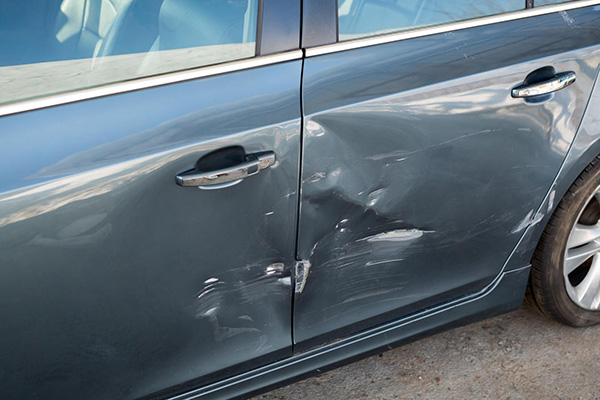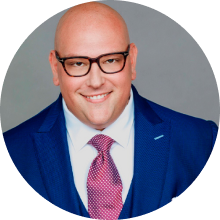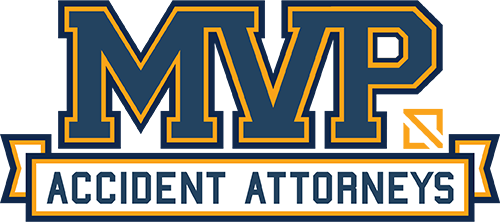
Collecting evidence at a car accident can make your case
Oh, no! You’ve just felt the thump on your bumper from being rear-ended. Worse, maybe you heard the excruciating screech of your car scraping against another as you pulled into a parking spot. Worse still, perhaps you’re involved in a multi-car pileup on the freeway.
Undoubtedly, the first thing to do after an accident—no matter how severe or minor—is to check on each person's physical condition (including yourself). Below, we’ll give you some tips on what evidence to preserve after a car accident and how to do that... but only if you’re physically capable of doing so, and if you can do it without causing yourself further injury.
If you or someone else is injured, immediately call 911 for assistance.
But if you can manage a bit of “processing the scene”, you can help your legal claim in the long run by ensuring that you’re collecting evidence that can help your case.
Why do you need evidence from a car accident?
You want to preserve anything that would demonstrate how the accident happened and who was at fault.
There are two reasons why this is important:
-
- California is an at-fault state. The person who causes the accident is responsible for paying for the victim’s damages. If there are questions about who caused the accident, evidence that shows what happened will be crucial for assessing damages.
- California is a pure comparative negligence state. If the plaintiff (injured person) shares any part of the liability, their damages can be reduced according to their percentage of fault. If you’re the plaintiff, you want the evidence to minimize your role in causing the accident.
If there are questions or disagreements, you’ll need the evidence in order to paint a picture of what happened so the insurance companies or the court can award damages correctly.
Car accident evidence that can help you recover damages
Photographs of the scene
You might have heard the phrase, “a picture is worth a thousand words.” Truer words were never spoken when it comes to car accident evidence. There are several ways a photograph can capture evidence at the scene that would help demonstrate what happened and the aftermath.
Photos could show factors that contributed to the accident, like weather conditions, road signs or signals, road conditions, the positions of vehicles after the crash, and the extent of damage to vehicles or other property. Be sure not to photograph other people’s injuries without their permission, though.
You can read more about how to take effective photos at the scene of an accident:
Witnesses
A good witness can be the make-or-break factor to a lawsuit or settlement.
You don’t have to worry at the scene of an accident about taking witness statements. But what you can and should do is to make sure to have their contact information so you can find them later.
Often, the most important witnesses are the ones who are not involved in the accident. A well-meaning bystander or pedestrian, or another driver, might stop what they’re doing when they witness a crash in order to make sure people are okay and see if they need help. They might even wait at the scene for first responders to arrive. In the shock and chaos of an accident, the involved drivers might not even notice these people—but if they slip away quietly when help arrives, you can miss your opportunity to capture their observations.
When an accident happens, look around to see who’s there. If possible, speak with each person and get their name and contact information. All you want is to be able to reach them later so they can speak with your lawyer to relay their version of what happened.
Camera or video surveillance footage
Like it or not, cameras are everywhere these days. You’re likely being recorded many times a day without even knowing.
This might make people uncomfortable, but sometimes it could work in your favor—like if you’re the victim in an accident or injury caught on film.
If the accident happens near a home or business, it’s worth inquiring about whether there was surveillance video that captured the accident. However, it’s important to check on this fairly soon because most businesses routinely delete digital footage if they don’t think they have a reason to save it. If the accident has been captured on film, you can ask the business to preserve the video. Likewise, homeowners might have digital systems that delete footage after it reaches a certain capacity or time limit, so it’s important to check on this promptly before the video is lost.
Likewise, dashcams and other types of video could be present at the scene, so you would simply need to ask nearby drivers if there is any footage.
Police report
It’s always beneficial to obtain a police report, even if the accident seems minor. You can and should call the police after any crash.
It’s beneficial to have a police report even if you’re the at-fault driver.
That’s because you might think (correctly) that the other party suffered only minor injuries and minor damage to their vehicle. But in the absence of a police report, they could report all kinds of things to their insurance company... that they suffered severe physical injury, or that their vehicle’s pre-existing damage was the result of the crash with you. It would be difficult to disprove their claims unless you have an official report that sets forth observable damage and injury at the scene.
Medical records
It’s crucial that after an accident, you seek a medical evaluation. Even if you don’t believe your injuries are serious or require treatment, you should visit a hospital emergency department, urgent care, or your regular provider.
There are some symptoms that might show up in the days or weeks following an accident. If you haven’t had a medical evaluation at the time of the crash, it would be difficult to prove that they are the result of the accident.
If you have injuries, your diagnosis and treatment will be important because you can receive damages for those costs. Be sure to let the treating physician know that you’re there because you were in an accident so that it’s documented in your chart.
You also need to keep records of every medical visit, medication and treatment related to the crash. Keeping detailed records of the dates and types of treatments, along with copies of bills or amounts paid, will be crucial to receiving the correct amount of compensation.
Vehicle repair records
Since California is an at-fault state, the person who caused the accident is responsible for paying for related costs.
Even if the other driver is responsible, you should report the accident to your own insurance company. Your insurance company will work with the other party’s insurance company to make your claim.
Your insurance company might have authorized repair shops where you’d need to get an estimate for the cost of repairs to your vehicle. Your insurance agent can advise you about where to get a quote and what your next steps should be. If the other driver’s insurance covers the repair costs, you might need to get a quote from one of that company’s authorized repair service providers.
Like with your medical records, keep receipts for any payment made in car repair or for repair or replacement of any other personal property.
Seek the advice of a California car accident lawyer
You can only do so much.
For example, a business that captures an accident on video isn’t required to hand over that footage to you just because you asked. But lawyers have ways of compelling people and businesses to preserve and share evidence.
You also won’t be able to access any other involved person’s medical records, photos taken on their phone, vehicle records, or other documents without a lawyer’s help.
The team at MVP handles cases like this all the time and we can help you to determine what evidence is important and how to find it. Contact us today for a free consultation.
Author

Brett Sachs
Brett S. Sachs graduated from Michigan State University College of Law with Cum Laude Honors. While attending Michigan State, Brett was awarded for his service in the Michigan State University College of Law Civil Rights Clinic, where he represented prisoners of the Michigan Department of Corrections from injustices brought upon them. Learn more.
Top-Rated Lawyers

Lizbhett Rodriguez
Jason Acosta

When You’ve Been Injured
Personal Injury Law

